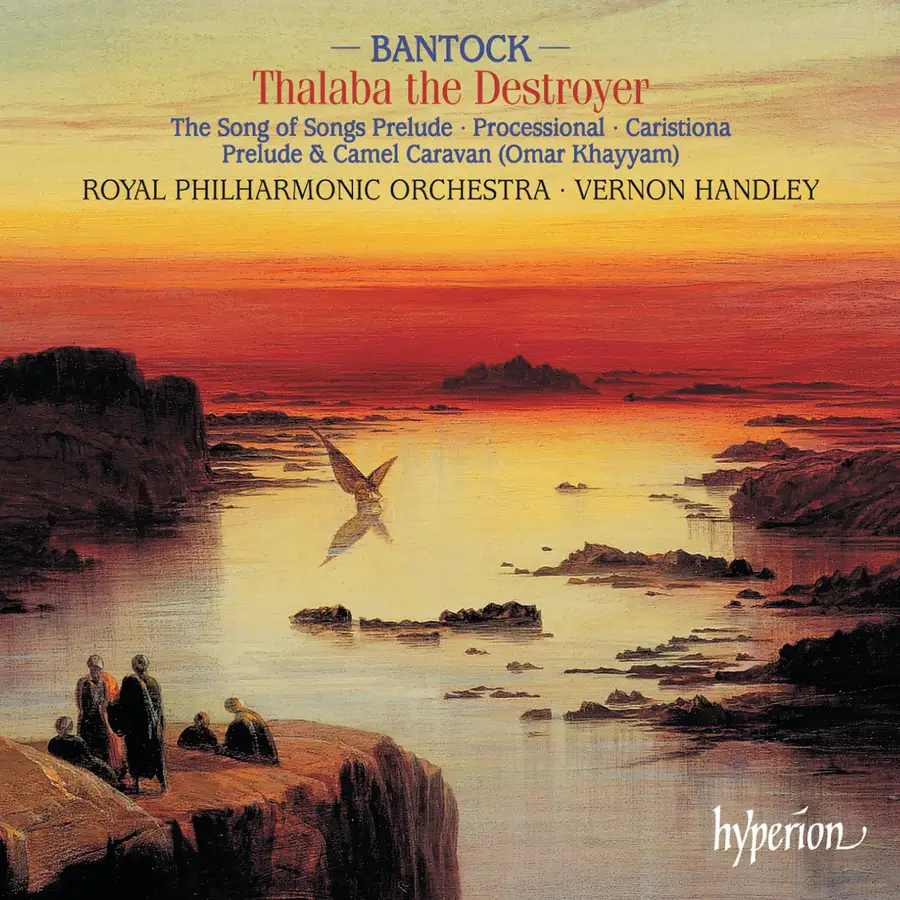Breakin' 2: Electric Boogaloo
Who doesn't enjoy a good sequel?
Some might remember an 80s film entitled Conan the Barbarian, with an excellent title theme from film composer Basil Poledouris. That movie spawned a sequel Conan the Destroyer, reminding me of the title from this Bantock recording.
While Robert E. Howard's Conan dates from the early 20th Century, Thalaba is at least a century older (Southey's 19th Century epic poem is based on older Arabic sources); yet there are similarities. The character Thalaba destroys demons for revenge, and falls in love only to have his relationship dashed.
If you haven't guessed by now, the main work here is the symphonic poem Thalaba the Destroyer, a musical tale following the exploits of the titular hero. All of the story's characters receive a musical theme from Sir Granville Bantock, and while Thalaba's motive is more a surge of energy and rhythmic interest, I find it all rather engaging.
There are definitely 'Eastern' bends in the work's modal harmonies, making the music sound colorful and exotic. Thalaba's love music is filled with overwrought syrupy strings, which is never my favorite style, but the entire action moves along at a good enough clip for me to enjoy the whole, plus the many ups and downs contrast nicely.
If the 26-minute tone poem wasn't enough, Hyperion includes five more orchestral preludes and poems. Much of the music has a musical Eastern Orientalism, so they fit well alongside Thalaba. The two excerpts from Omar Khayyám include an atmospheric Prelude which directly leads into the much more colorful Camel Caravan, complete with chorus. The latter is a delight from start to finish.
I think I have grown to enjoy the Prelude from Bantock's Song of Songs more on repeated hearings, where at first it was too soap opera-y for me. Maybe because it is the least exotic piece on the program and it perhaps goes on a tad too long, I had trouble coming around to its music. The opening flourish is great fun though, and surging strings contrast nicely with aggressive brass retorts.
The 'Sea Poem' Caristiona is also flavored with the exotic, although it is much more airy than its discmates, featuring many flowing orchestral solos. Oppositely, the blandly titled Procession is an extrovert piece, an excellent companion to Thalaba the Destroyer which follows it. The chromatic harmonies with bold brass greatly contrast the bardic harping, only to bandy between the two musical ideas aside swollen string lines.
For me, the interest on this album mostly lies in its title piece. The others are late-Romantic efforts of varying musical development, although no one could fault the playing of the Royal Philharmonic Orchestra. In these shorter pieces, Vernon Handley lays on the lyrical side of the music, where I could imagine more inner vitality in the presentation. Still, we have a picture of Norman del Mar's authentic camel bells!
As an aside, the painter Edward Lear created the cover image based on his own travels on the Nile. He apparently wrote of the moth-like boats he saw, recreated on canvas for our viewing pleasure. At first I thought it a fantasy piece, but the Old-World past reveals great surprises to our Modern Day entitlement.
Also, who just credits 'with chorus' without listing the chorus. This seems a slight, easily rectified by a few extra characters on the physical media. After all, the front picture researcher receives a nod twice, and he didn't even perform!
Works
Thalaba the Destroyer (26.05)
Song of Songs: Prelude (11.40)
Omar Khayyám: Prelude & Caravan (14.32)
Caristiona (9.31)
Processional (14.40)
Performers
Chorus!?!
Royal Philharmonic Orchestra
Vernon Handley, conductor
Label: Hyperion
Year: 2001
Total Timing: 76.50
I like Thalaba the Destroyer quite a bit, and that is coming from a listener who doesn't particularly enjoy the exploits of Late-Romanticism.
The others are more atmospheric and less memorable, although there are delights of sorts to find in each of them.
Vernon Handley and the Royal Philharmonic Orchestra continue their excellent contributions.



Comments
Post a Comment